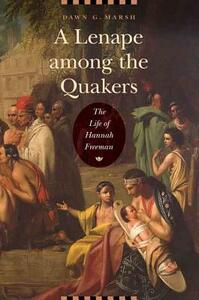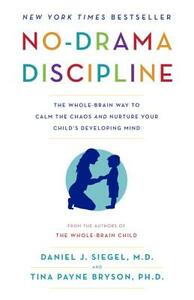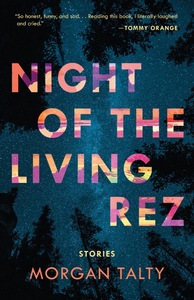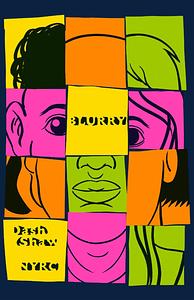You need to sign in or sign up before continuing.
Take a photo of a barcode or cover
quakerquixote's Reviews (19)
fast-paced
This is really a very short essay, lovely to read, but all things you might have found Fosse saying in other places. But it's a good distillation, and perhaps best returned to again and again (it can be read in 10-15 minutes).
challenging
informative
sad
medium-paced
This is a tremendous book, and a sobering one. Using what historical records remain of Hannah Freeman, an eighteenth-century Lenape woman who lived on her ancestral lands in what is now known as Chester county, Marsh is able to tell much of the early history of Native peoples in Pennsylvania. I was especially impressed her very specific account of the dispossession of the Brandywine Lenapes. I'm relatively familiar with the history of William Penn's land policy in Southeastern Pennsylvania, but this was a completely new level of detail for me. Speculative at times, but on the whole an effective complication of the mythos and legacy of Quaker-Indigenous relations.
No-Drama Discipline: The Whole-Brain Way to Calm the Chaos and Nurture Your Child's Developing Mind
Tina Payne Bryson, Daniel J. Siegel
informative
The information in this book is fine, but I found it to be a bit boring and repetitious. I might think of reading another book of theirs first, such as The Whole-Brain Child.
These are grim stories depicting life on the Penobscot reservation. I'm reading some reviews that talk about moments of hope in the book, but while there may be times of humor and tenderness, I think finding hope in this novel is a stretch. There is a sort of sad beauty to the way Talty consistently maintains the gritty, realistic tone of these stories throughout the collection. While there is some gesturing towards a desire for a way out or something more, ultimately the generational trauma these stories reveal feels inescapable.
hopeful
inspiring
reflective
medium-paced
A very unique account of a series of gatherings in the 80s and 90s that helped to develop meaningful and long-lasting relationships between Natives and non-Natives in the region of Maine. The first part of the book, in which participants share their recollections of the gatherings, is the most interesting part. The reflections on takeaways that follow in the next part are interesting, but rely more on quotation from participants rather than their extended reflection, diminishing the reading experience. The afterward reflecting on the gatherings from the perspective of a scholar from Aotearoa New Zealand familiar with Māori-Pākehā relations is a very effective and gratifying way to conclude.
challenging
informative
slow-paced
On one hand, this book is an incredible achievement, a dizzying synthesis of an extremely wide range of ideas and research. Rosa extends and develops the tradition of Critical Theory associated most famously with Adorno, trying to elaborate not just the shape of modern alienation, but also a constructive response to it. His answer is "resonance theory," which is somewhat elusive, but basically seeks to relate with or connect to the world in a satisfying way. (Technically: intrinsic interest+self-efficacy=an adaptive transformation, i.e. resonance).
On the other hand, this is a ponderous tome that, while insightful, is often repetitious, overly abstract, and lacking a compelling through line. As an entry to the genre of modernity theory, this book suffers from too much information that often overwhelms elucidation, and I'm not sure the idea of resonance theory is ultimately that much of a payoff. I will likely return to this, but I sincerely wish it were more more accessible.
On the other hand, this is a ponderous tome that, while insightful, is often repetitious, overly abstract, and lacking a compelling through line. As an entry to the genre of modernity theory, this book suffers from too much information that often overwhelms elucidation, and I'm not sure the idea of resonance theory is ultimately that much of a payoff. I will likely return to this, but I sincerely wish it were more more accessible.
medium-paced
I was given this book years ago by a friend, and read it between the passing of Pope Francis and the election of his successor. I'd read Laudato si' previously, but only knew about Amoris Laetitia due the the controversy surrounding it's comments on communion for divorced and remarried individuals. However, there is much here beyond that. While this document feels more bureaucratic that Laudato si' given its frequent quotation of church deliberations, it has some genuinely moving and wise sections. The extended meditations on 1 Corinthians 13 and the reflections on pastoral care and directions for married couples are the parts of the book that stood out to me most and to which I would return again.
fast-paced
I read this this because I love Discipline and understand that Dash Shaw is something of a savant. I found this book lovely to look at and interesting at times, but it did not have a strong conceptual payoff for me. It felt like it was aspiring to say something big, but I came away wanting more than a series of characters whose lives are intricately linked and beautifully illustrated.
medium-paced
I learned a lot about August Wilson from this book. As a former theater critic, Hartigan has a great sense for how the theater works, and she does a great job outlining how Wilson and director/producer Lloyd Richards used the regional theater system to essentially workshop his plays before bringing to Broadway. She always gives good summaries of the plays and sometimes helpful context. You learn much about Wilson as a person, although in some ways I felt he remained opaque.
Hartigan is a journalist, so lots of "who, what, where, when, why," and at times I wished for more depth and analysis. I think Dwight Garner nailed it in his NYT book review: "It’s solid and well reported. But it’s dutiful. It lacks ebullience and critical insight. The writing is slack and, by the second half, the clichés are falling so heavily you need a hat." Still, it's an interesting work, especially since it began as an authorized biography written in collaboration with the estate, but was ultimately published without the estate imprimatur. In that way, it's an interesting artifact in the continuing reception of Wilson and the way his legacy is being shaped by both his supporters and the broader public.
Hartigan is a journalist, so lots of "who, what, where, when, why," and at times I wished for more depth and analysis. I think Dwight Garner nailed it in his NYT book review: "It’s solid and well reported. But it’s dutiful. It lacks ebullience and critical insight. The writing is slack and, by the second half, the clichés are falling so heavily you need a hat." Still, it's an interesting work, especially since it began as an authorized biography written in collaboration with the estate, but was ultimately published without the estate imprimatur. In that way, it's an interesting artifact in the continuing reception of Wilson and the way his legacy is being shaped by both his supporters and the broader public.








